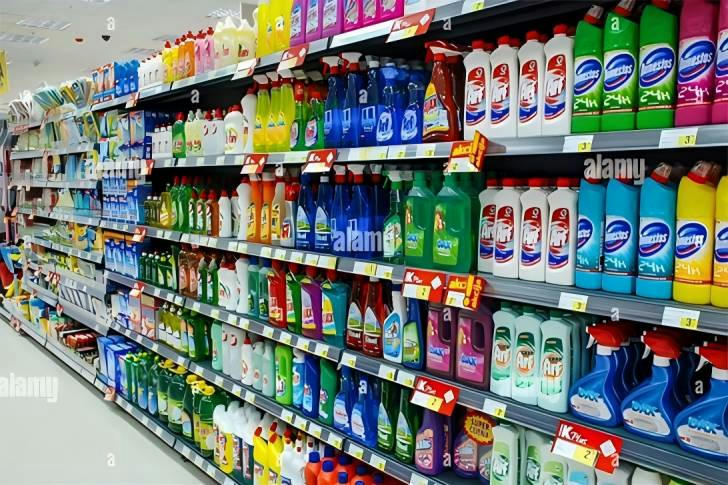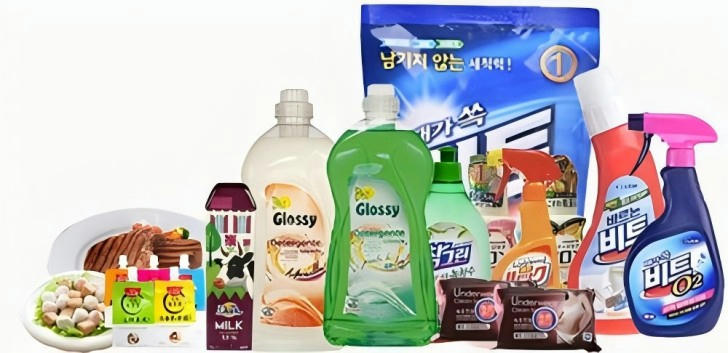How to Choose the Right Laundry Detergent for Your Home: Pros and Cons of Different Types of Laundry Detergent
In modern life, laundry detergent has become an essential item for every household. However, when you walk into a supermarket. or browse for laundry detergents online, the plethora of products can be overwhelming. Some families prioritize stain removal, while others focus on eco-friendliness or antibacterial properties. So how do you choose the right laundry detergent for your family? This article will analyze the advantages and disadvantages of differ.

I. Advantages and Disadvantages of Different Types of Laundry Detergents
1. Regular Liquid Laundry Detergent
Advantages:
Easily dissolves, especially in cold water, ensuring thorough cleaning of clothes.
Strong cleaning power, capable of handling everyday stains typically found in households.
Versatile; suitable for both standard and high-efficiency (HE) washing machines.
Disadvantages:
Plastic packaging is not eco-friendly, often resulting in a significant amount of waste.
Overuse can leave soap residue on clothing, affecting fabric feel and wearability.
Target Audience: Suitable for households that require daily cleaning of clothes, especially those with children whose clothes frequently get dirty.
2. High-Efficiency Laundry Detergent (HE)
Advantages:
Specifically designed for HE washing machines, it cleans effectively with low water usage, saving on water and electricity.
Reduces foam and residue, making it easier to rinse, ideal for areas with water scarcity.
Long-term use can effectively extend the life of the washing machine.
Disadvantages:
Using it in standard washing machines may yield inferior cleaning results compared to regular detergents.
Generally more expensive, which may not be economical for some families.
Target Audience: Families with HE washing machines who want to save water and energy.
3. Laundry Pods/Packets
Advantages:
Convenient to use; pre-measured design prevents waste.
Clean and tidy; no spills or mess, making it ideal for those who dislike handling liquid or powder.
Typically formulated with concentrated ingredients, providing strong stain removal capabilities.
Disadvantages:
Relatively expensive, with a higher cost per use compared to traditional liquid or powder detergents.
There is a risk of accidental ingestion, particularly for households with young children or pets.
Target Audience: Users seeking simplicity and efficiency, especially singles or small families.
4. Natural/Organic Laundry Detergent
Advantages:
Made with natural ingredients, free from artificial fragrances and harmful chemicals, making it environmentally friendly.
Gentle and non-irritating, suitable for sensitive skin or families with infants.
Eco-friendly packaging supports sustainable development practices.
Disadvantages:
Generally more expensive than conventional laundry detergents, making them less cost-effective.
May not perform as well on tough stains compared to traditional options, often requiring the use of additional cleaning agents.
Target Audience: Families that prioritize health and environmental concerns, particularly those with allergies or sensitive skin.
5. Powder Laundry Detergent
Advantages:
Strong stain removal, especially effective against stubborn dirt and grass stains.
Usually more affordable, making it suitable for larger households with heavy laundry loads.
Longer shelf life and less prone to degradation over time.
Disadvantages:
Dissolves less effectively in cold water, which may leave white residues on clothing.
Not very compatible with HE washing machines, potentially leading to excessive foam.
Target Audience: Households whose clothes often get dirty or sweaty, particularly those who engage in outdoor activities.

II. Case Study: The Smith Family's Choice
The Smith family lives in the suburbs of the U.S. They have two children, and their youngest son loves playing outside, often getting his clothes dirty. Additionally, they have a pet dog. Both parents are committed to environmental protection and have a moderate income.
Problem: The Smiths were looking for a laundry detergent that could effectively clean the clothes of their children and pets while being gentle and non-irritating to their skin. They also wanted to be energy-efficient since they had a high-efficiency washing machine.
Solution: After some research, the Smiths decided to use high-efficiency natural laundry detergent. They chose a brand based on natural plant ingredients that was specifically labeled for HE washing machines, capable of effectively cleaning in low water environments.
Result: After several weeks of use, the Smiths were very satisfied with the results. The stubborn stains on their children's and pet's clothes were effectively cleaned, and their washing machine operated smoothly without excessive foam or detergent residue on their clothes. Although the price of this detergent was slightly higher than that of regular detergents, they felt the investment in their family's health and the environment was worthwhile.
III. Conclusion
Choosing the right laundry detergent for your family is not only about achieving clean clothes but also about balancing health, environmental responsibility, and economic factors. When selecting a laundry detergent, it’s essential to consider your family’s specific needs, such as:
If you have a high-efficiency washing machine and care about saving water and energy, opt for high-efficiency laundry detergent.
If you have children or pets and need a formula that effectively cleans stubborn stains while being gentle, natural laundry detergent may be the best choice.
For those seeking convenience and do not mind a higher price, laundry pods can provide a comfortable washing experience.
No matter which type of laundry detergent you choose, understanding its advantages and disadvantages, as well as how well it matches your needs, is crucial for ensuring effective cleaning and maintaining your family’s health. By considering the characteristics of different types of laundry detergents, you can find the product that best suits your family's requirements.
